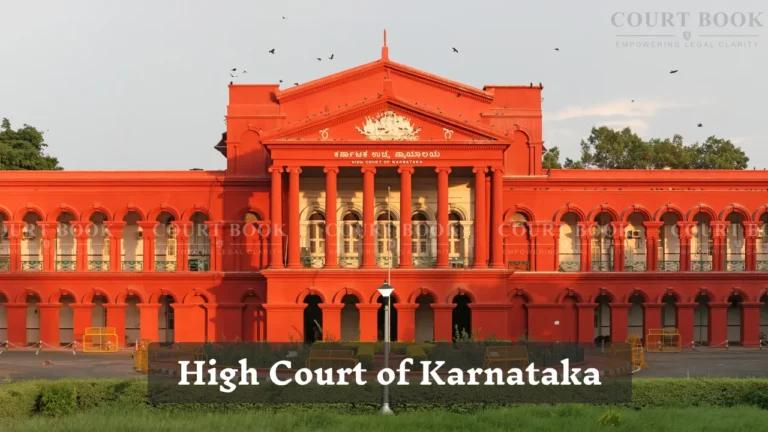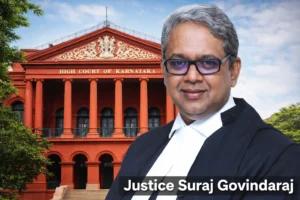In a significant assessment, the Karnataka High Court praised the peaceful coexistence and communal harmony in Yadgir district, where Hindus and Muslims actively participate in each other's religious festivals.
The district, located on the border of Karnataka and the former princely state of Hyderabad, has long had a tradition of celebrating festivals on religious lines. Referring to religious places such as Sharanabasaveshwara Temple and Khaja Bandnawaz Dargah, the Court said:
"These institutions are living examples of communal harmony and the model adopted at Yadgir can inspire the entire country."
Read also: Why did the Supreme Court Grant Anticipatory Bail to Tamil Nadu MLA Jegan Murthy in Minor Kidnapping
Highlighting this unique harmony, the Court said that during Muharram, Hindus not only participate but also worship some Hindu deities together with Muslims. A notable example of this is Tumkur village in Wadgera taluk, where both communities come together to worship the Hindu deity Kashimalli during Muharram.
During the festival, a traditional folk dance called 'Alai Bhosai Kunitha' is performed in front of the village temple, accompanied by the playing of an instrument called 'Halige' by members of the Madiga community, a Dalit group.
However, tensions arose when the Madiga community objected to the beating of 'Halige', considering it caste-based discrimination. This led to confrontations between Dalits and upper caste Hindus and a petition seeking a ban on public celebrations such as 'Alai Bhosai Kunitha' during Muharram.
Deciding on a writ petition filed by members of the Madiga community, Justice M.I. Arun emphasised the importance of maintaining communal peace but also individual liberty. He said:
"It is unfortunate that a Muslim festival, which is being celebrated by both Hindus and Muslims in a cordial manner, has led to communal clashes between upper caste Hindus and Dalits."
Read also: BCI Issues Stern Warning Against Online, Distance and Executive LLM Courses Without Approval
The Court clarified that while it is important to promote festivals of peace and unity, no community can be forced to participate in rituals they oppose:
"A community has the right to celebrate festivals without inciting others. However, a particular community cannot force another to perform an act which they abhor, even if it has been done traditionally."
The Court directed the authorities to consider the petition, consult all stakeholders and take a decision in accordance with the law. The Court also said:
“If the celebration is to continue, no one can compel the Madiga community to beat the ‘Halige’. It is the duty of the State to ensure adequate security for all participants.”
Read also: Karnataka High Court Raises a Lot of Questions on Sealed Documents in Bengaluru Stampede Case
In a powerful concluding remark, the Court said:
“The salvation of the country lies in recognising man as man and Indian, with other identities playing a secondary role.”
The judgment not only respects the cultural practices of different communities, but also underlines the importance of voluntary participation and mutual respect in preserving the pluralistic fabric of India.
Case : Madiga Dandora v. The State of Karnataka
Appearance: Advocate Vinay Swamy C for Petitioner.
AGA Mallikarjun Sahukar for Respondent.















